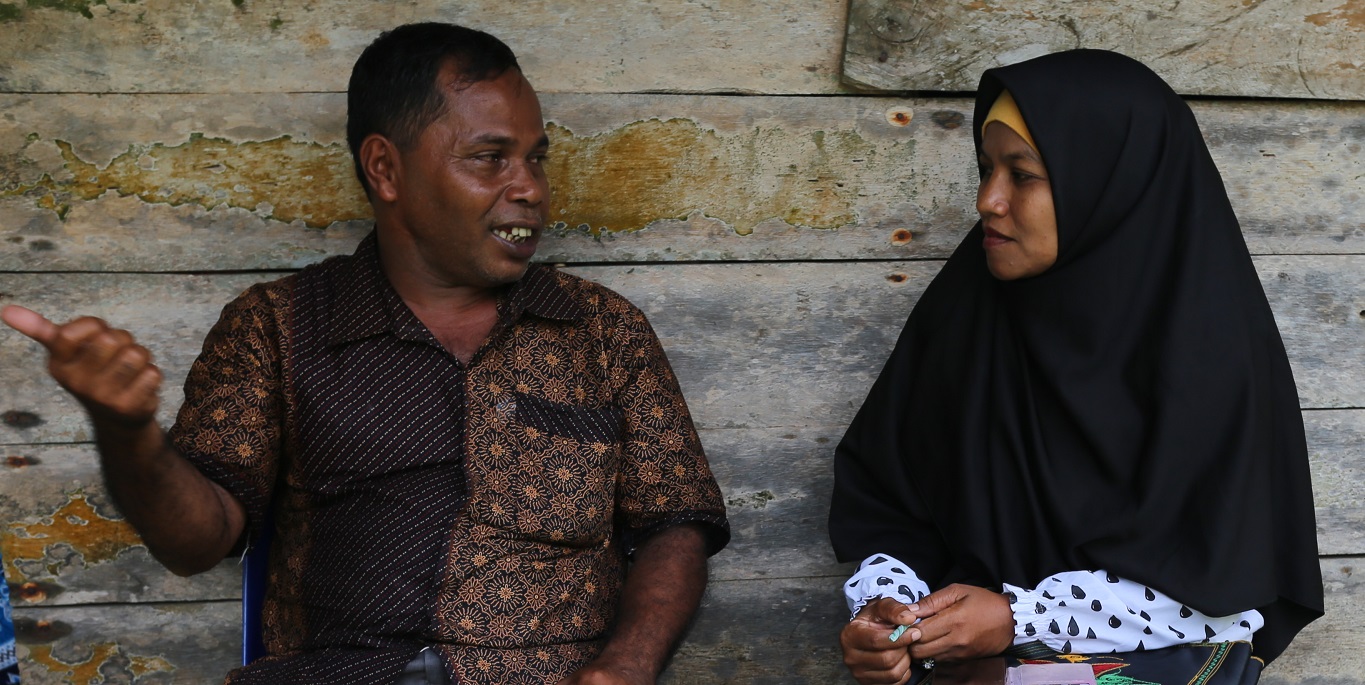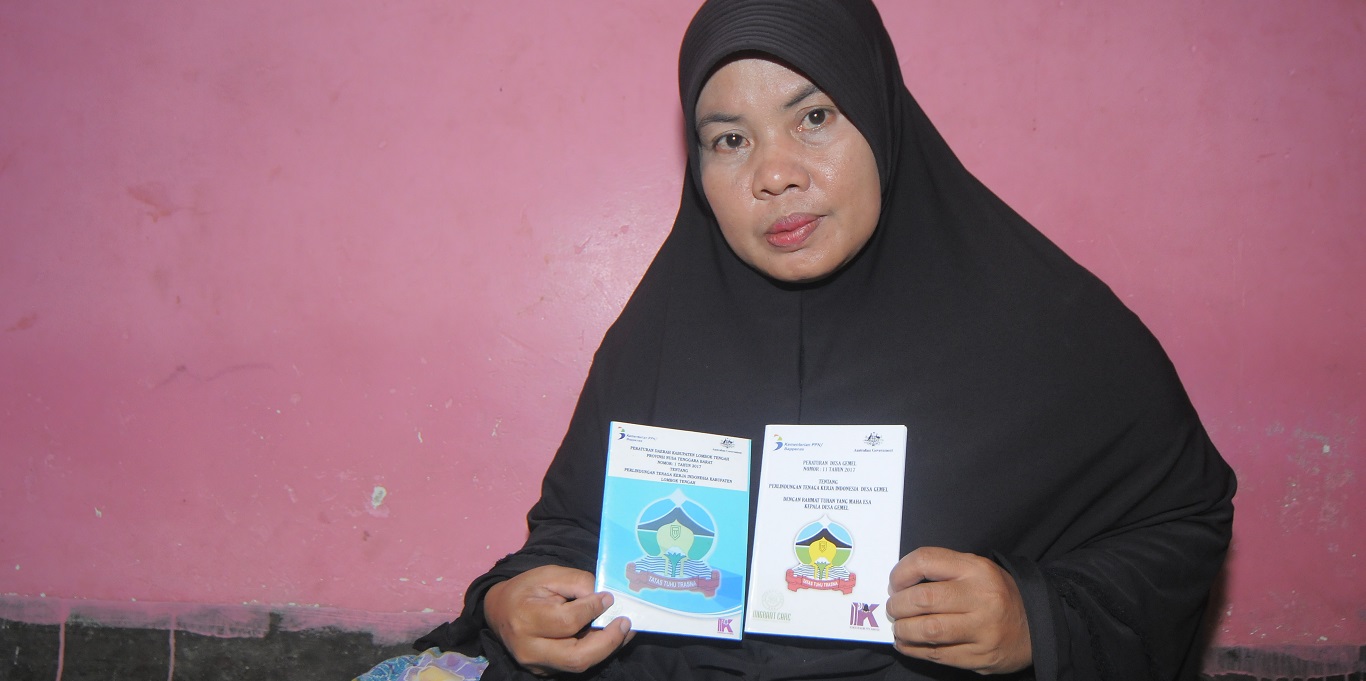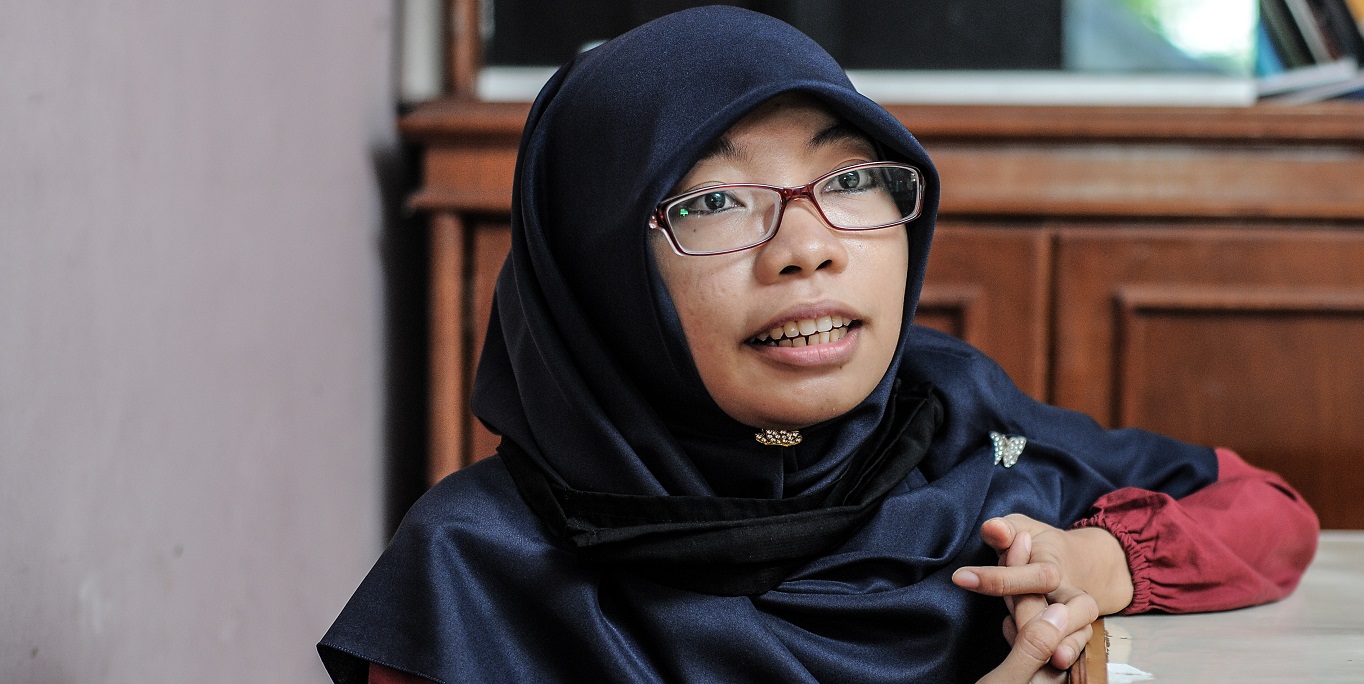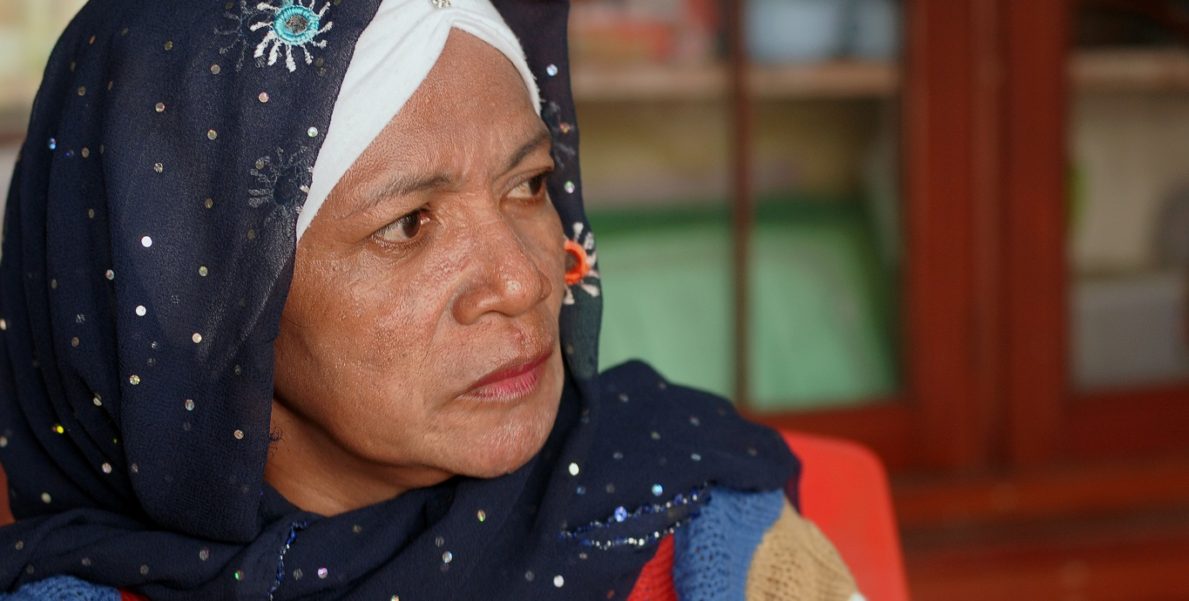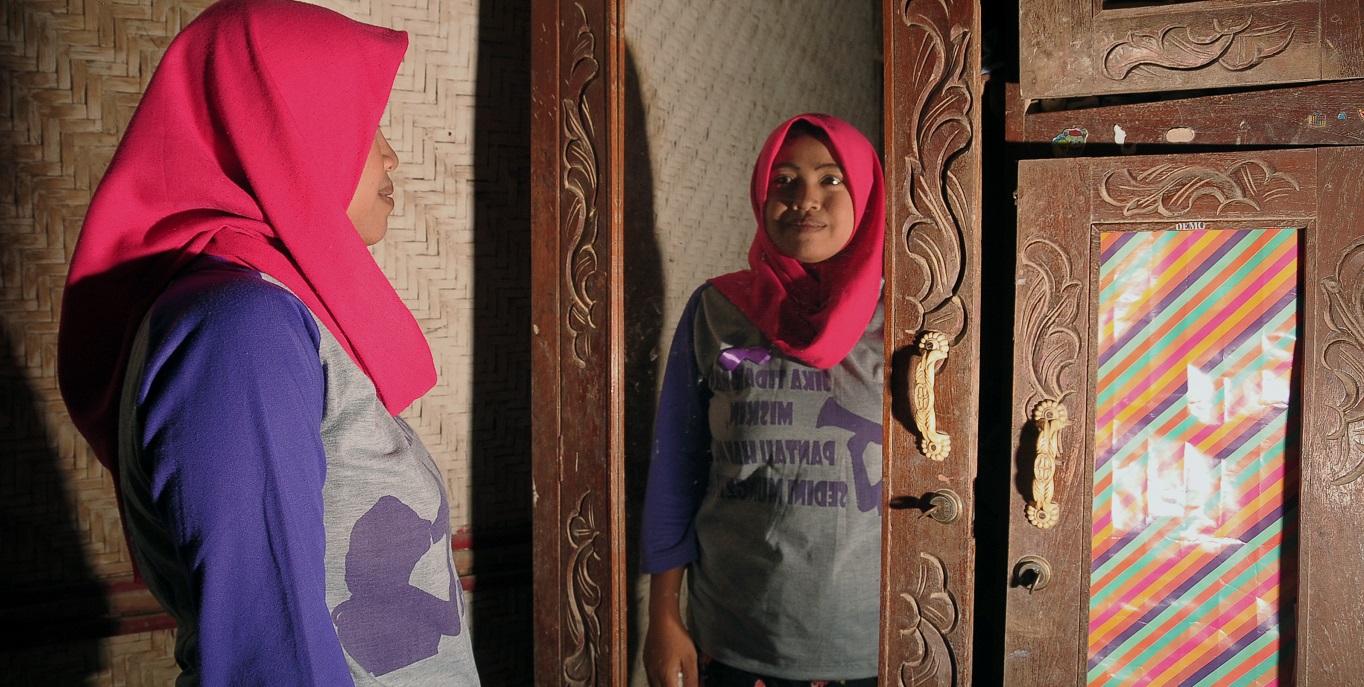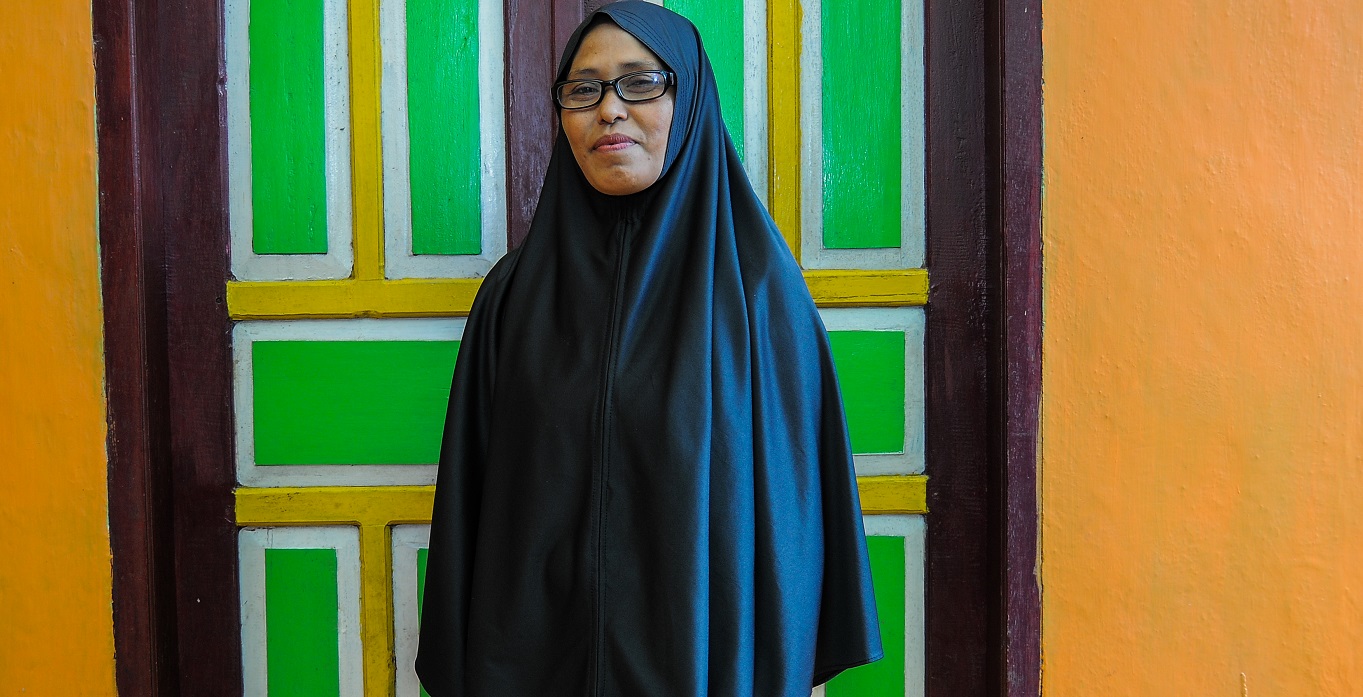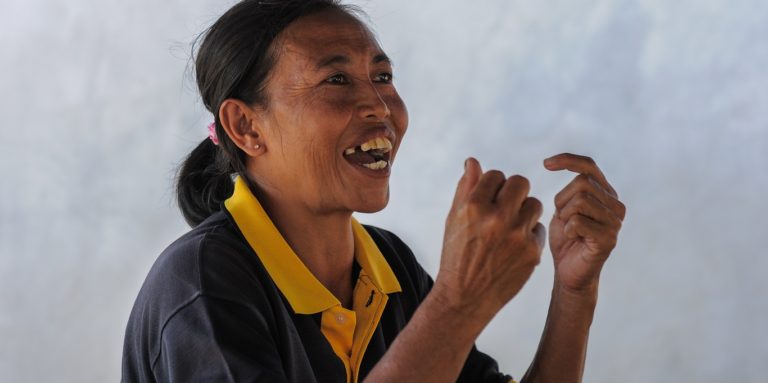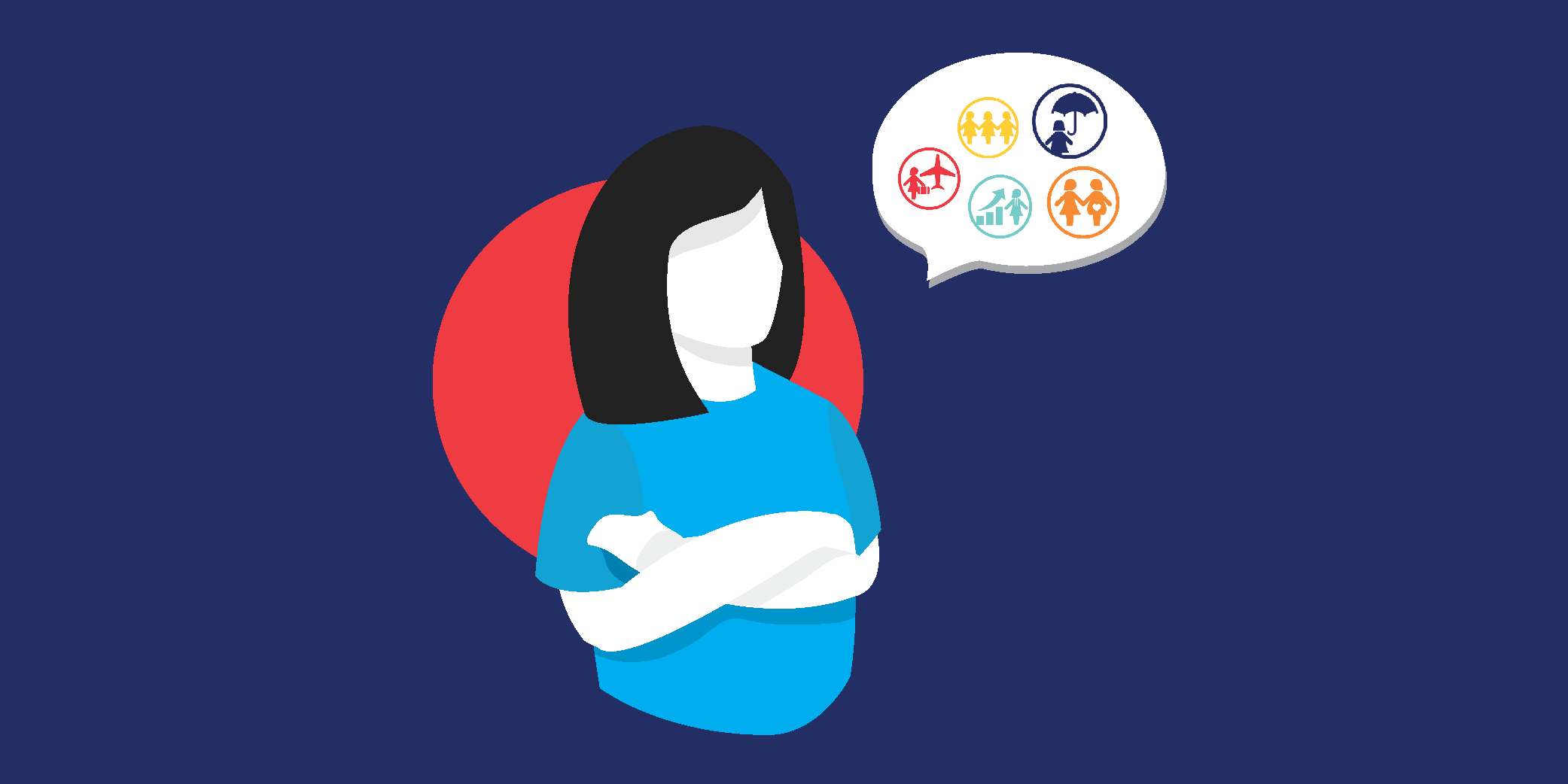Stories
A survivor’s determination to raise awareness about reproductive health
12 November 2018Penulis: admin

When Nurhaeda first joined the local women’s group, Balai Sakinah ‘Aisyiyah (BSA) Griya Citra Mas in 2014, she found that many of the members were still hesitant to talk openly about reproductive health. As a coordinator, Nurhaeda responded to that challenge by facilitating sessions about reproductive health in the routine group meetings. Her experience surviving breast cancer was a contributing factor that led her to become active in disseminating information about the importance of early detection for breast and cervical cancer.
“I am passionate about spreading information regarding the importance of the VIA tests (visual inspections with acetic acid), so that I can contribute to reducing the maternal mortality rate,” said the woman from the village of Biraeng which lies in the Minasate’ne District of Pangkajene and Kepulauan (Pangkep) Regency, South Sulawesi.
Besides providing health counselling, Nurhaeda, or Eda, as she is usually called, is active in pushing for economic empowerment opportunities for women in her village. In September 2015, she was appointed to the Pangkep Regency ‘Aisyiyah Regional Economic Leadership Council.
Nurhaeda’s enthusiasm grew through taking part in a number of BSA training sessions facilitated by ‘Aisyiyah, one of MAMPU’s partners working to improve women’s health and nutrition. Through these trainings Nurhaeda has gained a lot of new knowledge about reproductive health, including information about the early detection breast self-examination (BSE) as well as the symptoms of various sexually transmitted infections and types of cancers.
Nurhaeda believes that knowledge is vital for women to be able to face the challenges in their lives. In her late fifties, she has not stopped learning and continues to use the knowledge she gains to empower others.
“Lots of us only graduated primary school or junior high school. So, we must join in lots of training sessions so that we can gain knowledge that we can pass on to our children for their future,” said the mother of three children.
Nurhaeda admitted that inviting women to take part in cancer early detection examinations such as VIA or pap smears is not always received positively. Only three of the twenty members of the organization took part in the first VIA test that was held by BSA Griya Citra Mas. Nurhaeda was aware that it was possible that the women were embarrassed to talk about reproductive health in front of lots of people, so she tried a number of approaches.
“If it were possible, I would visit the women in their homes. I would say ‘Don’t be embarrassed, this is [important] for your health.” she explained.
Nurhaeda’s determination brought results. When ‘Aisyiyah Pangkep held a free public VIA test, pap smear, and clinical breast examination to mark International Breast Cancer Day in October 2017, almost all of the members of BSA Griya Citra Mas took part. “Some of them, who were non-BSA members, also participated,” she explained proudly.
Changing lives through early detection
As a survivor of breast cancer, Nurhaeda is committed to raising awareness about the importance of early detection. Nurhaeda has undergone two operations, one in 2012 and one in 2015 after two lumps were found in her right breast. This experience is used by Nurhaeda to encourage women in her community to carry out early detection tests, which often changes their lives.
Because of the free early detection tests, two members of BSA Griya Citra Mas were able to quickly access treatment.
For the member who was diagnosed with cervical cancer, Nurhaeda and all of the members of BSA in Biraeng helped to collect donations through a program called Gerakan IVA Sayang Ibu to help pay for her surgery.
Nurhaeda’s commitment to advocating the importance of early detection through BSA has brought her many meaningful experiences. Through taking the VIA test, a woman who Nurhaeda was supporting, found out that she was a victim of malpractice from a midwife who had handled the birth of her child. As a result of the midwife making a mistake when stitching her up after childbirth, she has experienced pain during intimate relations with her husband. After finding out the source of the problem, treatment was possible, and her relations with her husband improved.
Similarly inspiring encounters also happen whenever Nurhaeda encourages BSA members who have suffered pain in their breasts to undergo examinations, and supports them to not be afraid of having operations if necessary. Nurhaeda believes that prevention is better than cure, but when medical treatment is needed, it must be sought without delay.
“I don’t want there to be any delays in having early detection examinations for breast cancer or cervical cancer. I don’t want other women to have to experience the same thing that I did,” Nurhaeda concluded.



